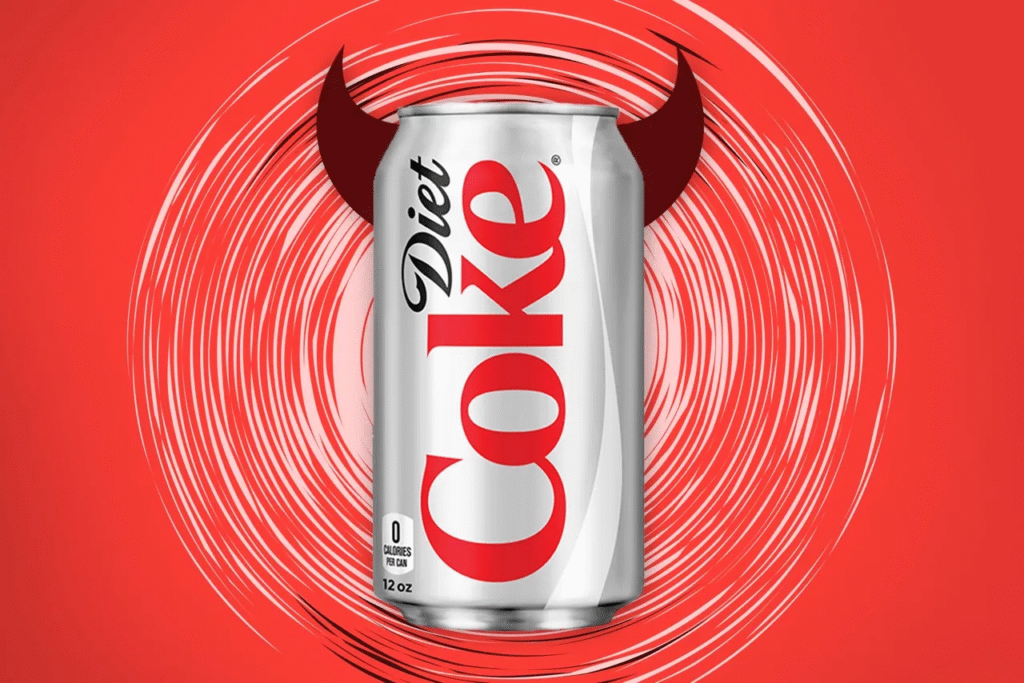
Diet Coke remains a global beverage giant, constantly navigating shifting consumer tastes and intense health scrutiny. In India’s burgeoning soft drink market, its zero-sugar promise attracts urban consumers seeking lower-calorie indulgence. Yet, persistent questions about artificial sweeteners keep it firmly in the headlines. Understanding its journey, impact, and evolving challenges is key to grasping modern beverage dynamics.
The Birth of a Zero-Calorie Icon
Introduced by The Coca-Cola Company in 1982, Diet Coke (known as Coca-Cola Light in some markets initially) wasn’t just a new product – it was a cultural phenomenon. It arrived as calorie consciousness surged. Marketed heavily towards women initially, its distinct silver can and “Just For the Taste of It” slogan quickly carved a massive niche. It became the world’s top sugar-free cola, a title it fiercely holds.
The Sweetener Question: Aspartame & Health Concerns
Diet Coke’s core appeal – its sweet taste without sugar calories – relies on artificial sweeteners, primarily aspartame. This has been the epicenter of decades-long debate. While major regulatory bodies globally (FDA, EFSA, FSSAI) consistently deem aspartame safe within acceptable daily limits, consumer skepticism persists. Studies occasionally surface linking artificial sweeteners to potential issues like altered gut bacteria or metabolic changes, though causation remains fiercely debated. Experts emphasize moderation is key.
Market Position: India’s Diet Cola Landscape
In India, Diet Coke competes primarily with PepsiCo’s Pepsi Black in the zero-sugar cola segment. While regular colas dominate volume, Diet Coke holds significant sway in metropolitan areas and among health-conscious demographics, professionals, and those managing conditions like diabetes. Its availability is widespread in modern retail, restaurants, and increasingly through e-commerce grocery channels. Exact market share figures are proprietary, but it remains the clear leader in its category.
Reinvention & Flavor Expansions
Facing fluctuating sales and changing preferences, Diet Coke has aggressively innovated. A major 2018 rebrand introduced slimmer cans and vibrant packaging. Crucially, it expanded its flavor portfolio beyond classic Lime/Twist and Ginger/Lime variants. Permanent and limited-edition flavors like Feisty Cherry, Zesty Blood Orange, and Exotic Mango cater to demand for variety and novelty, boosting its appeal, especially among younger consumers.
The Future: Wellness Trends & Reformulation Pressures
Diet Coke’s path forward is complex. The global push towards “natural” ingredients and clean labels poses challenges. While reformulating away from aspartame entirely seems unlikely in the near term due to taste and cost, pressure mounts. Coca-Cola continues investing heavily in marketing Diet Coke as a stylish, contemporary choice. Simultaneously, the rise of sparkling waters, kombucha, and functional beverages intensifies competition within the broader low/no-calorie segment.
Enduring Fizz Amidst Scrutiny
Diet Coke exemplifies the tension between modern indulgence and wellness aspirations. It remains a powerhouse brand, deeply embedded in popular culture and offering a specific taste experience millions crave. While health debates won’t vanish, its continuous reinvention through flavors and branding ensures relevance. Its future success hinges on balancing its iconic identity with evolving consumer demands for perceived naturalness and transparency in the ingredients they consume.
Diet Coke: Iconic zero-sugar cola faces health debates & changing tastes. Explore its history, sweetener controversy, India market, flavor innovations & future challenges. #DietCoke
